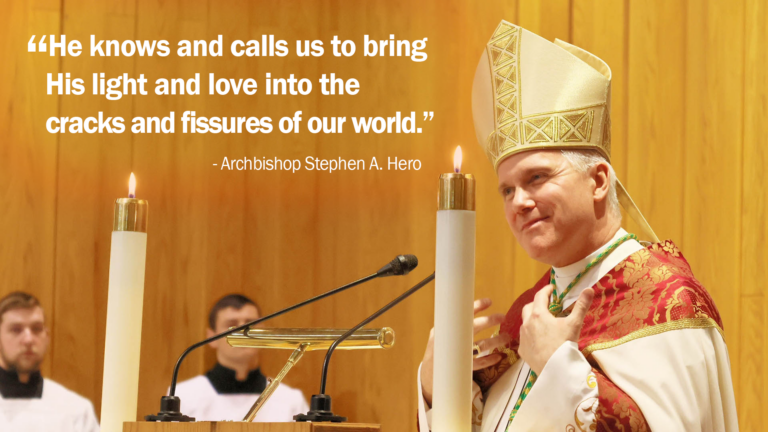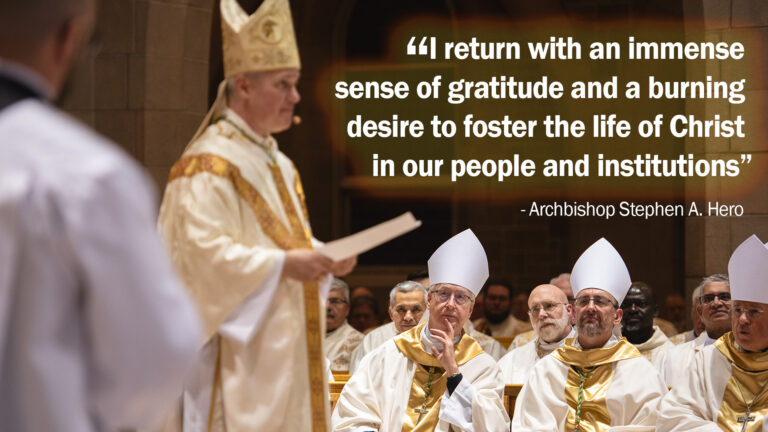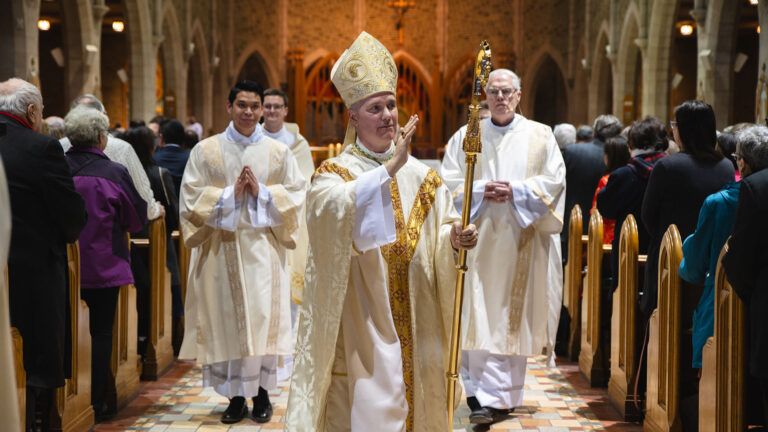Recently the practice has arisen of making a public acknowledgement of Treaty land at the beginning of civic events. The motivation is the desire to reach out to the Indigenous peoples of Canada in reconciliation and friendship through an acknowledgement that the territory they now share with non-Indigenous people is their ancestral land. With respect to making such acknowledgments in a church, or at liturgical events hosted in Catholic institutions, the Bishops of Alberta offer the following direction:
We must recognize that, for the Indigenous peoples, “land is not a commodity but rather a gift from God and from their ancestors who rest there, a sacred space with which they need to interact if they are to maintain their identity and values” (Pope Francis, Laudato si, n. 146). Furthermore, they understand treaty as a solemn covenant, entered into between equal and sovereign peoples, to confirm and preserve the respective rights of each party. It is a sacred agreement of peace and friendship, witnessed by the Great Spirit (God), and thus summons each party to a relationship of mutual respect, marked by honesty, kindness, sharing and strength.
Relevant to the Church’s discernment on this issue are its doctrine pertaining to the sacred liturgy and its language, and its theology of creation as the gift of God the Creator to all peoples. Fidelity to these principles, and respect for the profound significance attributed to both land and treaty by the Indigenous peoples, means that great care must be exercised not only in determining the formulation of any treaty land acknowledgement, but also in ascertaining the fittingness of its use in any particular instance or venue. We wish also to insist that a verbal land acknowledgement must be reflective of genuine respect for the Indigenous peoples, and of earnest efforts to walk with them toward lasting reconciliation; words alone are insufficient.
Many of the acknowledgements used in our day are forms of political speech. While they have their place, such formulations would not be appropriate at a Catholic liturgy, whose ritualized language aims uniquely at the praise of Almighty God. Neither would they be fitting for use in a church, since it is sacred space, solemnly consecrated for the worship of God.
To be suitable for use in a church, outside of the sacred liturgy, or at a liturgical event in a Catholic institution, the formulation of acknowledgement must be not a political but a theological statement. In this regard, we recognize that the Church’s theology of creation finds an echo in the Indigenous respect for the land as gift of the Creator. Acknowledging God as giver of the gift is in itself an act of praise. Therefore, where it is deemed appropriate to offer a treaty land acknowledgment at an event held in a Catholic church or at a liturgical event hosted in a Catholic institution, the following formulation is to be used:
“We acknowledge that [Treaty N.] territory, on which we stand, is the ancestral traditional land of the Indigenous peoples, and is common home to everyone in virtue of God, our Creator’s, gracious gift.”
June 16, 2021
Download the Treaty Land Acknowledgement Letter (PDF, 1 page)




